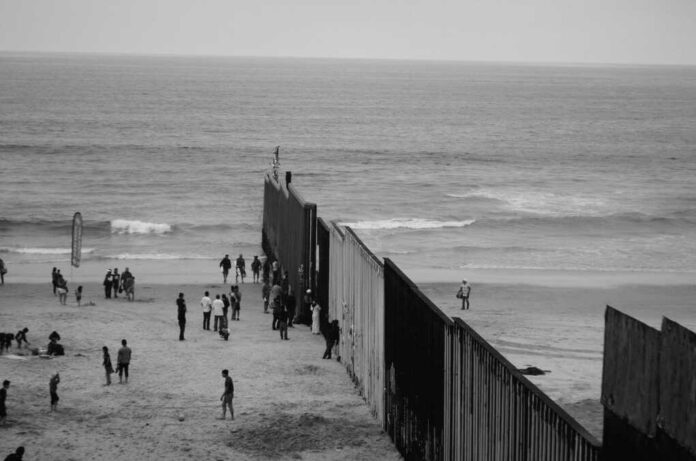(PartiallyPolitics.com) – On Friday, a federal appeals court upheld a previous court decision demanding that Texas remove a series of buoys it had installed in the Rio Grande’s waters. The court found that Texas had breached laws related to navigable waterways by positioning these obstacles along the border between the U.S. and Mexico.
The 5th U.S. Circuit Court of Appeals, in a 2-1 decision, supported the lower court’s judgment. It highlighted the buoys’ danger to navigation and federal operations on the Rio Grande, emphasizing the serious risk to human life these floating barriers posed.
Spanning 1,000 feet across the Rio Grande, the buoys were connected in a chain, each linked by a round blade with serrated edges, resembling a circular saw. They were anchored to the riverbed and stretched both upstream and downstream.
Installed around July 10, just after the tragic drowning of four migrants, including an infant, the buoys were part of Operation Lone Star, initiated by Governor Greg Abbott (R) as a response to perceived federal inaction at the border. In August, a body was discovered floating near these buoys.
Judge Dana Douglas, appointed by President Biden, penned the decision, emphasizing the risk to migrants attempting to cross the river, a danger acknowledged by Texas’s own statements about the perilous nature of the Rio Grande.
Texas defended the installation, arguing it was a necessary response to what it considered an “invasion.” However, this reasoning was sharply criticized by the lower court. District Judge David Alan Ezra highlighted that federal law mandates permission before installing such obstructions in navigable waters – a permission Texas did not seek.
The order to remove the buoys was initially put on hold by the 5th Circuit, pending further legal arguments.
In a dissenting opinion, Judge Don Willett, appointed by former President Trump, argued that the historical use of this specific segment of the Rio Grande wasn’t extensive enough to classify the waters as navigable, challenging the basis of the ruling.
Copyright 2023, PartiallyPolitics.com














